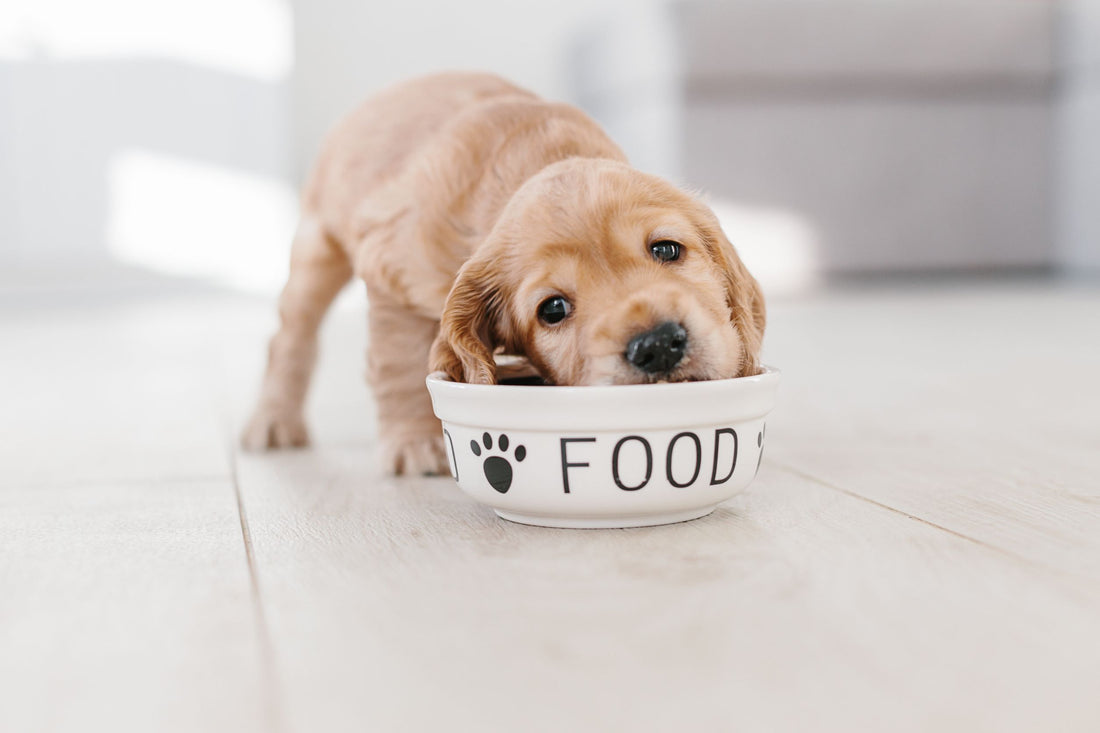The first 12-18 months of a young dog’s life are a crucial period that can influence their health and well-being for the rest of their lives. From diet to training, vaccinations to socialisation, many factors can play a significant role in on your dog’s future wellness, so it is important that you navigate this period with care and attention to help ensure that your puppy grows up to enjoy a healthy and happy adulthood.
Feed for their future
All of these areas of health and well-being are important, but diet is arguably the most important of them all, as a healthy, appropriate diet is linked to many aspects of long-term health from weight to allergies, skin health and even life expectancy – and inappropriate diets or feeding regimes can present a real danger to a dog’s future health.
As well as the direct link between the nutrients in your puppy’s food and their health, the impact of diet on the health of their gut microbiome is also a very important factor. The science of the gut microbiome and the role of the bacteria that do much of the work of digesting food to make it available to your dog is fast advancing and starting to show clearly how beneficial healthy diets with fresh wholefood ingredients can be for dogs – and the earlier your dog’s diet can start supporting their microbiome the better.
From my perspective as vet I am convinced that the best way to feed a puppy for long-term health is to include as much fresh, wholefood nutrition in their diet as possible, and this can be achieved in lots of ways, from adding some fresh veg to a top quality dried food right up to the ideal diet of complete gently cooked or raw meals. So, look at how you are feeding your puppy with their health and the health of their gut microbiome at the front of your mind, as how you start them off now will dictate so much of their future well-being.
Weight control
Obesity is a major issue for our dogs, with well over a third of all dogs in the UK thought to be overweight or obese, and dietary habits (both for the dog and parent) formed in these early months have a major influence on the chances of a puppy being overweight as an adult, and the associated increased risks of a wide range of related health issues including heart problems, diabetes, arthritis and many more.
There are many ways you can reduce the risks of your puppy becoming obese, including your choice of feeding regime – processed dry foods are super-convenient and often more affordable than other types of food, but they are much more concentrated than fresh foods which makes it much easier to overfeed, so take extra care if including this type of food in your puppy’s diet. It’s also important to weigh your puppy as regularly as possible and combine this with measuring their condition score as this provides a really good assessment of how appropriate their current weight is for them. This just involves looking at your puppy and running your hands over their ribs and hips; a healthy pup will have a thin but definite covering of fat under their skin, but not so much that the bones of the ribs and hips are difficult to see or feel. You should easily be able to feel the ribs when you run your hands over their flanks, but they shouldn’t be obvious when looking at them. If it’s hard to feel the ribs, and there’s no obvious waist between the ribs and hips, your puppy is carrying a little too much body fat and you should slightly reduce their daily food ration. If the ribs and hips are prominent and very easy to feel, increase their food until they reach a healthier body condition.
If you follow these basic principles, and make sure you’re feeding for a healthy microbiome with plenty of fresh wholefoods, you’ll ensure your dog grows up at a healthy weight and can enjoy a long, happy and healthy life.
At VetChef we have two puppy recipes available - Cotswold Beef Puppy 83 and Casserole of Lamb Puppy 83, both of which are packed with microbiome-friendly wholefoods and lots of high quality fresh meat.

